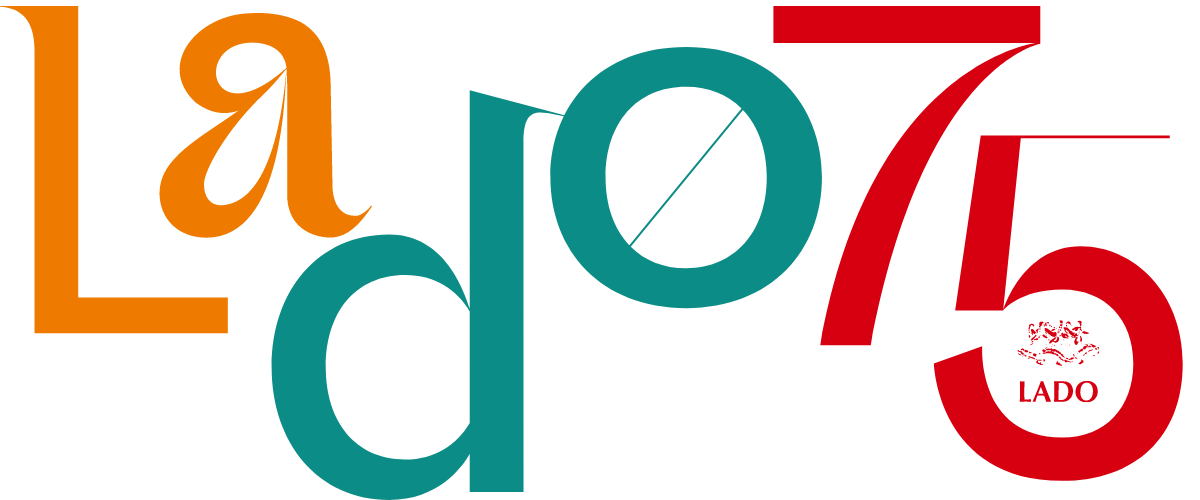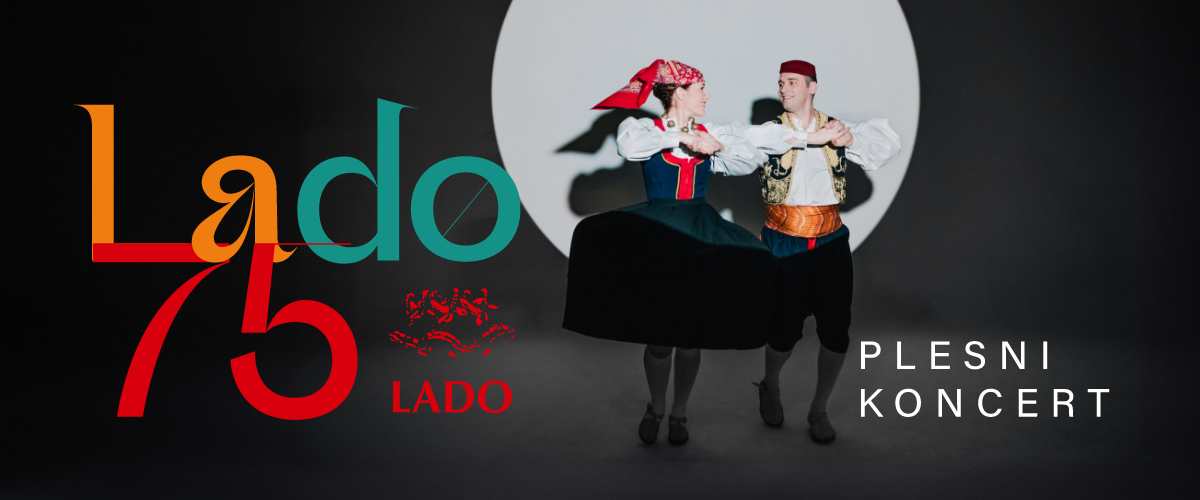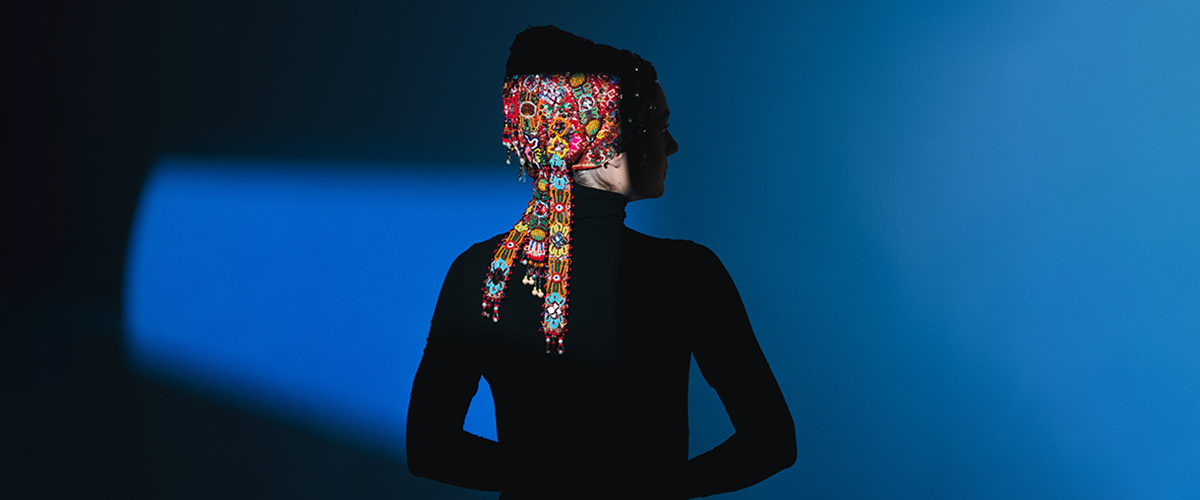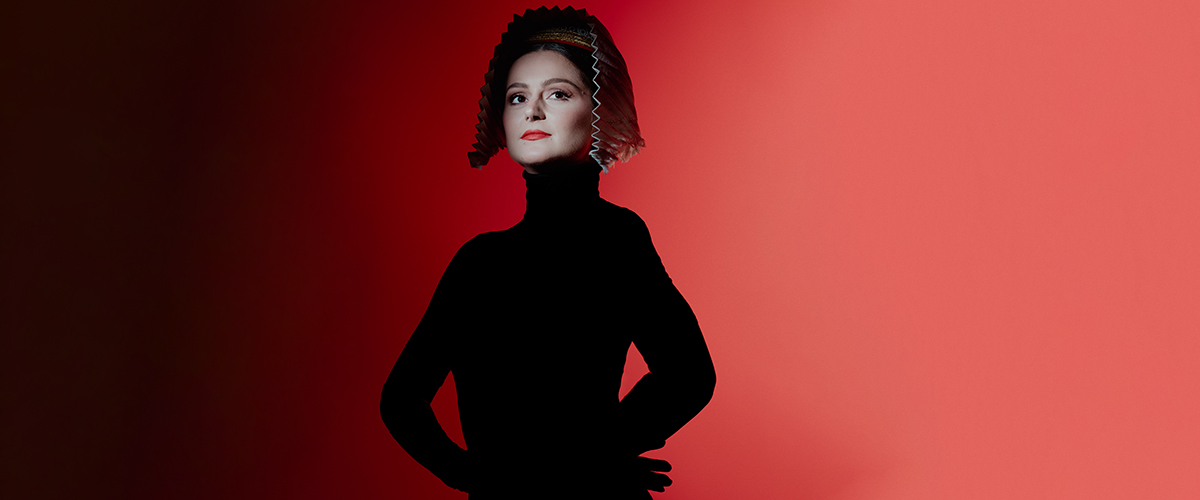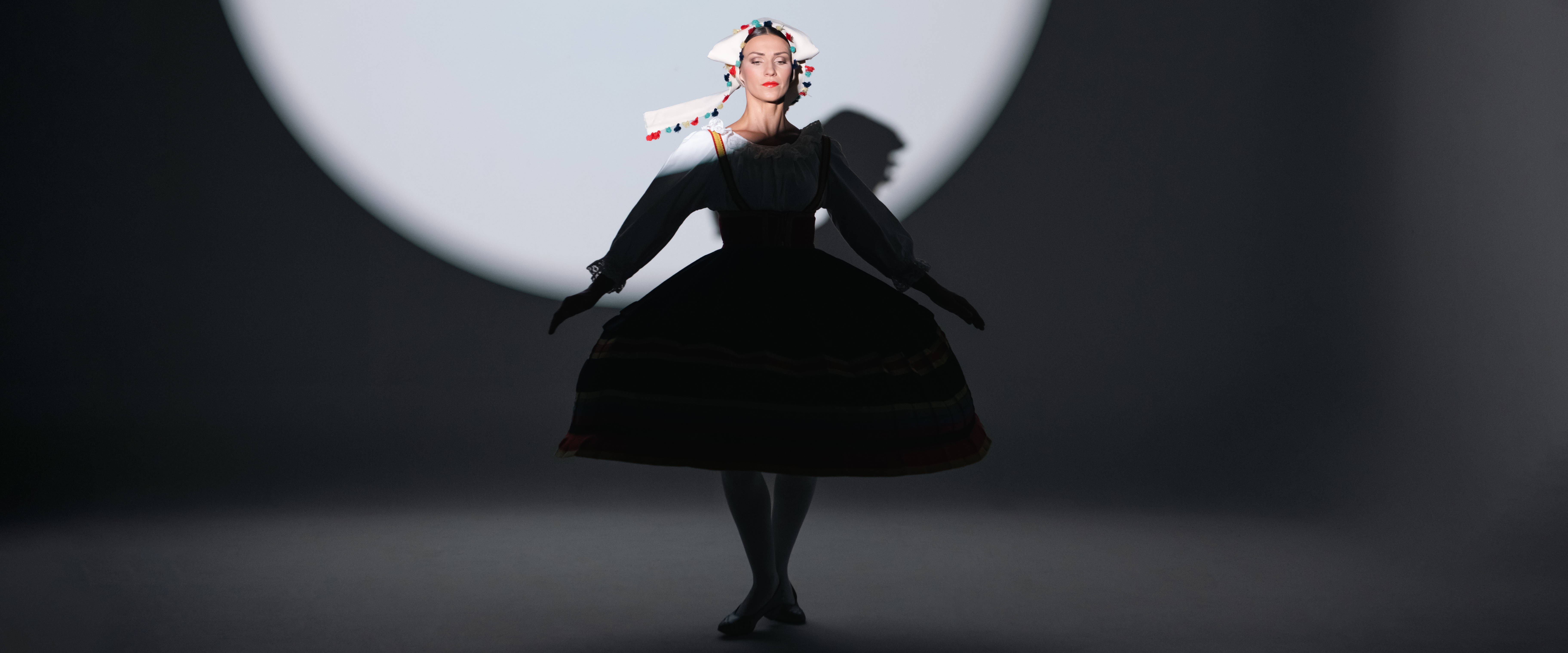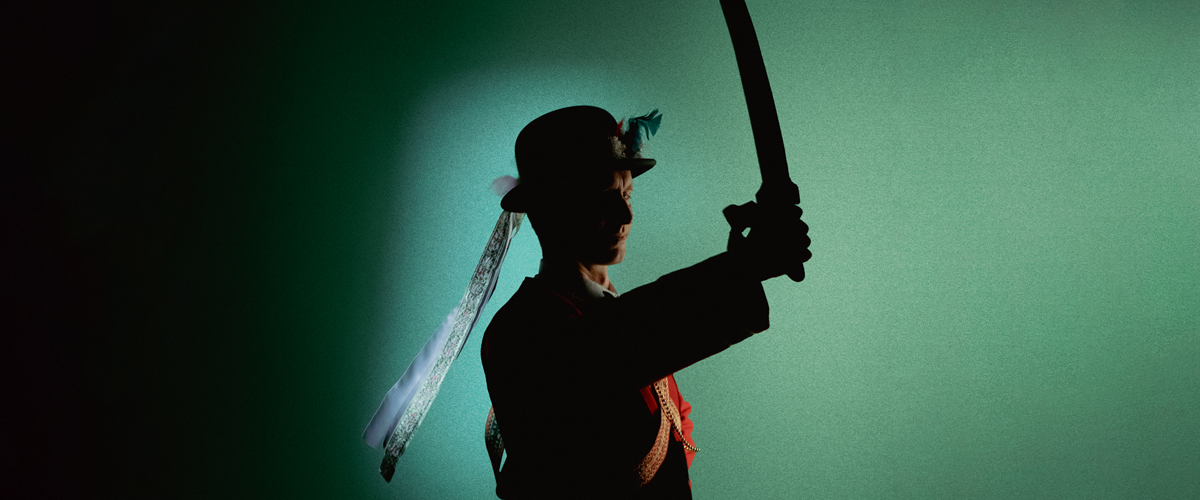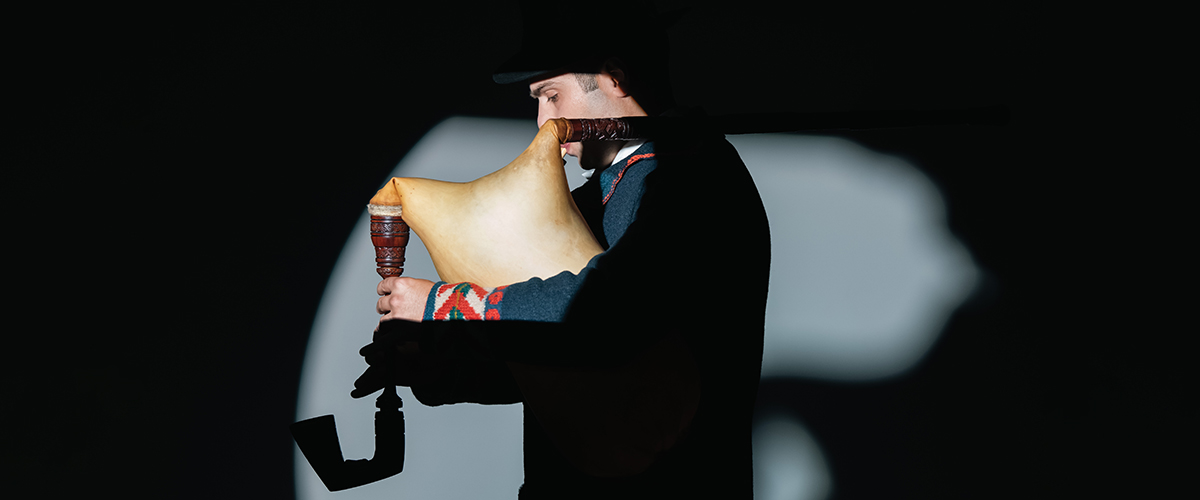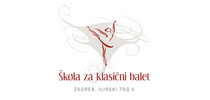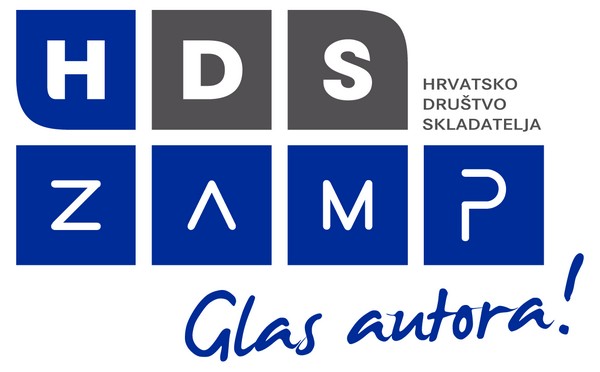History
On the 11th of November, 1949 a Decree was passed, which officially allowed for the creation of a national ensemble of traditional song and dance. From day one LADO's home and site of operation has been the building located on Marshall Tito Square (present Republic of Croatia Square), better known as Croatian House. For a number of years two organizations operated from this building, one being Hrvatski Sokol (Croatian Hawk) and the other, Kolo (Croatian Choir Society). Today the Academy of Dramatic Art and the Croatian National Ballet Theatre also share this building.
In May 1995 during the aggression on Croatia the building was the target of a missile attack which resulted in a number of members of the Ballet being injured.
During the first few years following World War II, several amateur folklore groups were formed, and one which gained particular prominence was Joza Vlahovic, the Youth Cultural and Artistic Society of Zagreb which was led by Artistic Director, Professor Zvonimir Ljevaković. As early as 1947, the group gained enviable international success at the first World Youth Festival in Prague by receiving second place in the competition; behind the well-known Igor Moiseyev Ensemble.
Drawing on his vast experience and continuous on-site research, Ljevaković collected a wealth of traditional folklore material which he artistically arranged and adapted for the stage. Due to his knowledge, his acute aesthetic sensibilities for colour and harmony, and to his personal involvement in the field, the LADO ensemble today has a uniquely and sizable collection of original national costumes, many of which are of museum quality. For twenty four years, until he retired, Professor Ljevaković was the artistic and inspirational leader of LADO, and was its most successful choreographer creating many folklore works for the stage which musically and choreographically are based on authentic expressions and elements of Croatian traditional folklore. Professor Zvonimir Ljevaković can, without a doubt, be given credit for much of the significant international recognition that LADO has received, and for its outstanding success with both audiences and critics alike.
From its first performance on February 4th 1950 at the Croatian National Theatre in Zagreb, LADO's focus and attention to Croatian traditional music and customs was clearly evident. This first concert consisted of nine dance suites, and six vocal numbers one of which was a Croatian folklore piece from Bosnia. Also performed at this concert were the following pieces: dances from the Island of Krk (Krčki tanac), Linđo from Dalmatia, dances from Slavonia and Vrlika, Young Man's Dance of Croatian Bunjevci, a wedding dance from Pokuplje, a dance from Istria (Balun), and dances from Posavina. An element of this Posavina choreography was six female dancers spinning in a circle, which later was to become LADO's recognizable trademark. A short but very positive review of this first performance of the new ensemble was given by the celebrated Professor Tvrtko Čubelić in the Vjesnik daily paper.
The person who was to succeed Zvonimir Ljevaković had to be a person equally knowledgeable in traditional song and dance and in 1974 it was Dr. Ivan Ivančan who became the new artistic director of the LADO Ensemble. Dr. Ivančan is Croatia's most renowned ethno-choreographer and is an author of over twenty books on Croatian dance traditions. Ivančan's significant contribution to LADO's repertoire, together with the wealth of choreographies he has created for many amateur ensembles throughout Croatia has set him apart from all others in the area of folklore in this country.
The path set by Zvonimir Ljevaković continued with Dr. Ivan Ivančan and was followed by artistic directors Hanibal Dundović (1983-1991) and Ivan Ivančan Jr. (1992 to the present), both of whom are experienced and long-time collaborators of the ensemble. Ivancan Jr. continued and built upon the work of Dundović, who together with Tomislav Uhlik and Bojan Pogomilović enhanced and developed the great vocal and instrumental potential of the ensemble, which were always present but not fully exposed. They achieved this by giving stand alone vocal concerts, concerts by the orchestra and by making recordings. Ivančan Jr. who with youthful enthusiasm combined with an abundance of experience has not only continued the positive work of his predecessors, but has also furthered and broadened it in all possible ways.
From the time of LADO's inception a half century ago, particular attention has been paid to the rustic style of open voice singing, as well as the playing style of traditional instruments; and careful consideration was given to the musical elements of every choreography and every instrumental piece. As a result, the material has stayed as authentic as is possible and prevents the possibility of emulating the 'newly composed' folklore music, or to cross the boundaries of 'good taste'. Initially in the Ensemble it was Božo Potočnik who was responsible for this musical direction and attention to detail, and later he was followed by musical directors: Dinko Fio (1975-1980), Tomislav Uhlik (1983-1985) and Bojan Pogrmilović (1985-1998). This duty has now fallen to Dražen Kurilovčan, who for a number of years now has been directing the vocal work of the ensemble and together with guest associates is responsible for the vocal aspects of performances.
Since December 1990, LADO has been equally successful with its performances of traditional sacred music and of these the two most well-known are the Christmas concert held at the Cathedral in Zagreb, and the Lenten concert which is held together with other programs of the Croatian Passion Heritage manifestation.
In addition to performing in world renowned concert halls and on national and international stages, LADO has also given concerts for distinguished audiences at various major international conferences and symposiums, at academic functions and celebrations, at fairs and world exhibitions, at University Games, at the Olympics, and at international and national festivals. It should also be mentioned that LADO has successfully collaborated with the Croatian National Theatre Ballet Company's Đavo u selu (Devil in the Village) by Fran Lhotka and with the Komedija City Theatre (Đerdan (traditional necklace)) by Jakov Gotovac and has performed Narodil se mladi Kralj (The Young King is Born) by Vid Balog and Tomislav Uhlik. LADO has also performed internationally as a result of invitations from Croatian expatriates, who through LADO, can revive memories of their musical and dance traditions, and who can perhaps spark an interest in their descendants for the sounds of the land of their forefathers.
As a result of performances given both within and outside of Croatia, LADO has many audio recordings and videos, in addition to TV and radio selections, thus leaving a permanent record and extensive legacy of folkloric activities caught in a particular moment in time. Evident in this material is the attention that is paid to the manner of musical interpretation and to the quality of performance. Aside from creating a general interest for Croatian traditional music, LADO also endeavours to broaden the path to a more complete understanding of its musical expressions and of areas for which many citizens of Europe (and the world) still cannot determine what geographic parallels they belong to. Whether or not such music is a bit too exotic or inaccessible to the average European listener is hard to say, but it is safe to say that Europe (or at least its experts) have ever so often recognized and acknowledged the distinctiveness of Croatian folklore music, as well as the excellence of performance, which LADO has always defined as the goal of its work when promoting Croatian folklore and art.
Trg Republike Hrvatske 6a, 10000 Zagreb, Croatia
OIB: 28251263363
MB: 3213862
Tel: +385 1 4828 472, 4828 473; Fax: +385 1 48 28 474
E-mail: lado@lado.hr
IBAN: HR6123600001101270924, Zagrebačka banka
